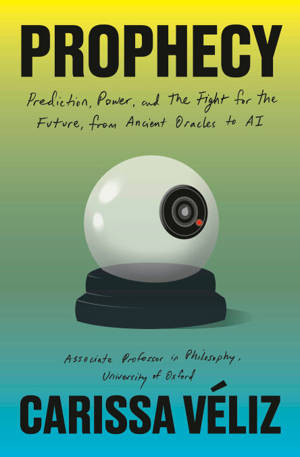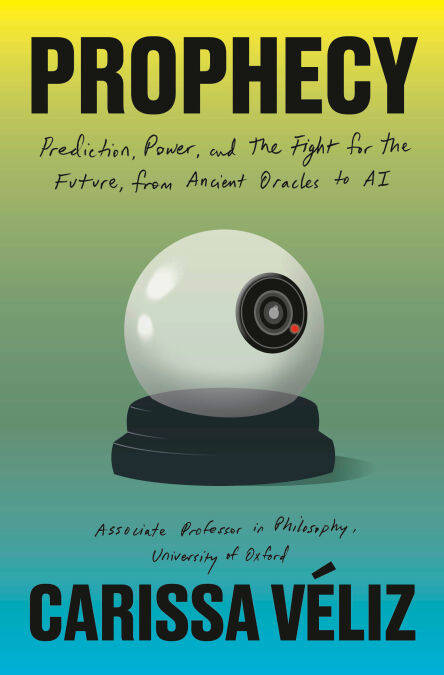
- Afhalen na 1 uur in een winkel met voorraad
- Gratis thuislevering in België vanaf € 30
- Ruim aanbod met 7 miljoen producten
- Afhalen na 1 uur in een winkel met voorraad
- Gratis thuislevering in België vanaf € 30
- Ruim aanbod met 7 miljoen producten
Zoeken
Prophecy E-BOOK
Prediction, Power, and the Fight for the Future, from Ancient Oracles to AI
Carissa Véliz
E-book | Engels
€ 17,34
+ 17 punten
Uitvoering
Omschrijving
From an award-winning University of Oxford professor comes a brilliant, urgent new look at prophecies—the predictions that determine our lives, from our personal finances and the quality of our healthcare to the news and social media we consume and the products foisted upon us.
Today’s computer scientists play the same role as the oracles of the ancient world and the astrologers of the Middle Ages. Modern predictions not only advise on war, crop output, and marriages, but algorithms and statisticians also now determine whether we can get a loan, a job, an apartment, or an organ transplant. And when we cede ground to these predictions, we lose control of our own lives.
In this powerful, refreshing new look at the many ways prediction shapes our everyday lives, University of Oxford professor Carissa Véliz explains how putting too much stock in others’ predictions makes us vulnerable to charlatans, con artists, dubious technology, and self-deception. Examining a wide range of subjects both personal and societal, including medicine, climate, technology, society, and others, Véliz uncovers a number of insights: predictions about humans tend to be self-fulfilling; more data doesn’t guarantee better outcomes; AI is more likely to increase risk than decrease it; and a free and robust society requires not more prediction, but better preparation.
Véliz argues in this incisive and bracingly original book that the main promise of prediction is not knowledge of the future, but rather power over others. Prophecy is an invitation to defy those orders and live life on our own terms.
Today’s computer scientists play the same role as the oracles of the ancient world and the astrologers of the Middle Ages. Modern predictions not only advise on war, crop output, and marriages, but algorithms and statisticians also now determine whether we can get a loan, a job, an apartment, or an organ transplant. And when we cede ground to these predictions, we lose control of our own lives.
In this powerful, refreshing new look at the many ways prediction shapes our everyday lives, University of Oxford professor Carissa Véliz explains how putting too much stock in others’ predictions makes us vulnerable to charlatans, con artists, dubious technology, and self-deception. Examining a wide range of subjects both personal and societal, including medicine, climate, technology, society, and others, Véliz uncovers a number of insights: predictions about humans tend to be self-fulfilling; more data doesn’t guarantee better outcomes; AI is more likely to increase risk than decrease it; and a free and robust society requires not more prediction, but better preparation.
Véliz argues in this incisive and bracingly original book that the main promise of prediction is not knowledge of the future, but rather power over others. Prophecy is an invitation to defy those orders and live life on our own terms.
Specificaties
Betrokkenen
- Auteur(s):
- Uitgeverij:
Inhoud
- Aantal bladzijden:
- 384
- Taal:
- Engels
Eigenschappen
- Productcode (EAN):
- 9780385550987
- Verschijningsdatum:
- 20/04/2026
- Uitvoering:
- E-book
- Beveiligd met:
- Adobe DRM
- Formaat:
- ePub

Alleen bij Standaard Boekhandel
+ 17 punten op je klantenkaart van Standaard Boekhandel
Beoordelingen
We publiceren alleen reviews die voldoen aan de voorwaarden voor reviews. Bekijk onze voorwaarden voor reviews.








